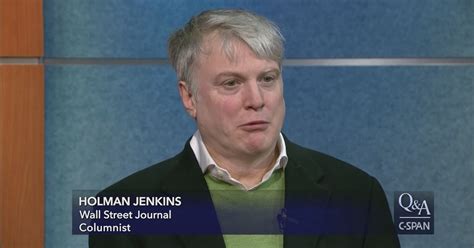A Quote by Whitney Tilson
My experience is that very few people have what it takes to be a successful investor, as I discussed in The Arrogance of Stock Picking.
Quote Topics
Related Quotes
Here’s how to know if you have the makeup to be an investor. How would you handle the following situation? Let’s say you own a Procter & Gamble in your portfolio and the stock price goes down by half. Do you like it better? If it falls in half, do you reinvest dividends? Do you take cash out of savings to buy more? If you have the confidence to do that, then you’re an investor. If you don’t, you’re not an investor, you’re a speculator, and you shouldn’t be in the stock market in the first place.
We are seeing a lot of cases where the startups are writing the term sheet, dictating the terms, selling common stock instead of preferred stock, where they don't give the investor veto rights or board seat or privileges, and they are really asking the investor -- why should I take your money when there is other money available.
Being a good private equity investor is more complicated than it seems. I would say that there are a few characteristics that are important. If you look at the skill set that you need to ultimately be a successful private equity investor, at least at the senior level, you have to be, in this business, a good investor. You have to be able to help companies perform and you have to have judgment around exiting investments. If you look at the skill sets there, they include some things you can teach and some that you can't.
Television from its inception had the number one goal to alienate as few people as possible. That's why if you look at 1950s, 1960s American sitcoms, the characters don't live any place in particular, religion is never discussed, politics is never discussed, you never really know what anyone's job is; nothing that could make these people seem different from you is ever discussed.
Often, there is no correlation between the success of a company's operations and the success of its stock over a few months or even a few years. In the long term, there is a 100 percent correlation between the success of the company and the success of its stock. This disparity is the key to making money; it pays to be patient, and to own successful companies.
The investor has the benefit of the stock market's daily and changing appraisal of his holdings, 'for whatever that appraisal may be worth', and, second, that the investor is able to increase or decrease his investment at the market's daily figure - 'if he chooses'. Thus the existence of a quoted market gives the investor certain options which he does not have if his security is unquoted. But it does not impose the current quotation on an investor who prefers to take his idea of value from some other source.
Sometimes people don't rehearse at all, but you might have had a chance to rehearse for a few days, or even more than that. Then in the moment when the camera's running is the only time it matters. So whatever you've discussed or thought about or discussed with the director, the other actors, hopefully there's a part of the experience that you've left open so that only in that moment the camera catches it. That's of course the hardest thing to do because everything is planned and you have thought about it in advance.
Rip Van Winkle would be the ideal stock market investor: Rip could invest in the market before his nap and when he woke up 20 years later, he'd be happy. He would have been asleep through all the ups and downs in between. But few investors resemble Mr. Van Winkle. The more often an investor counts his money - or looks at the value of his mutual funds in the newspaper - the lower his risk tolerance.
Unfortunately, our stock is somehow not well understood by the markets. The market compares us with generic companies. We need to look at Biocon as a bellwether stock. A stock that is differentiated, a stock that is focused on R&D, and a very, very strong balance sheet with huge value drivers at the end of it.
Unfortunately our stock is somehow not well understood by the markets. The market compares us with generic companies. We need to look at Biocon as a bellwether stock. A stock that is differentiated, a stock that is focused on R&D, and a very-very strong balance sheet with huge value drivers at the end of it.
Will customers keep supporting the enormous overhead required to sustain ineffectual, unproductive stock picking across an array of thousands of individual funds devoted to every investing 'style' and economic sector or regional subgroup that some marketing idiot can dream up? Not likely. A brutal shakeout is coming and one of its revelations will be that stock picking is a grossly overrated piece of the puzzle, that cost control is what distinguishes a competitive firm from an uncompetitive one.


































